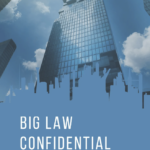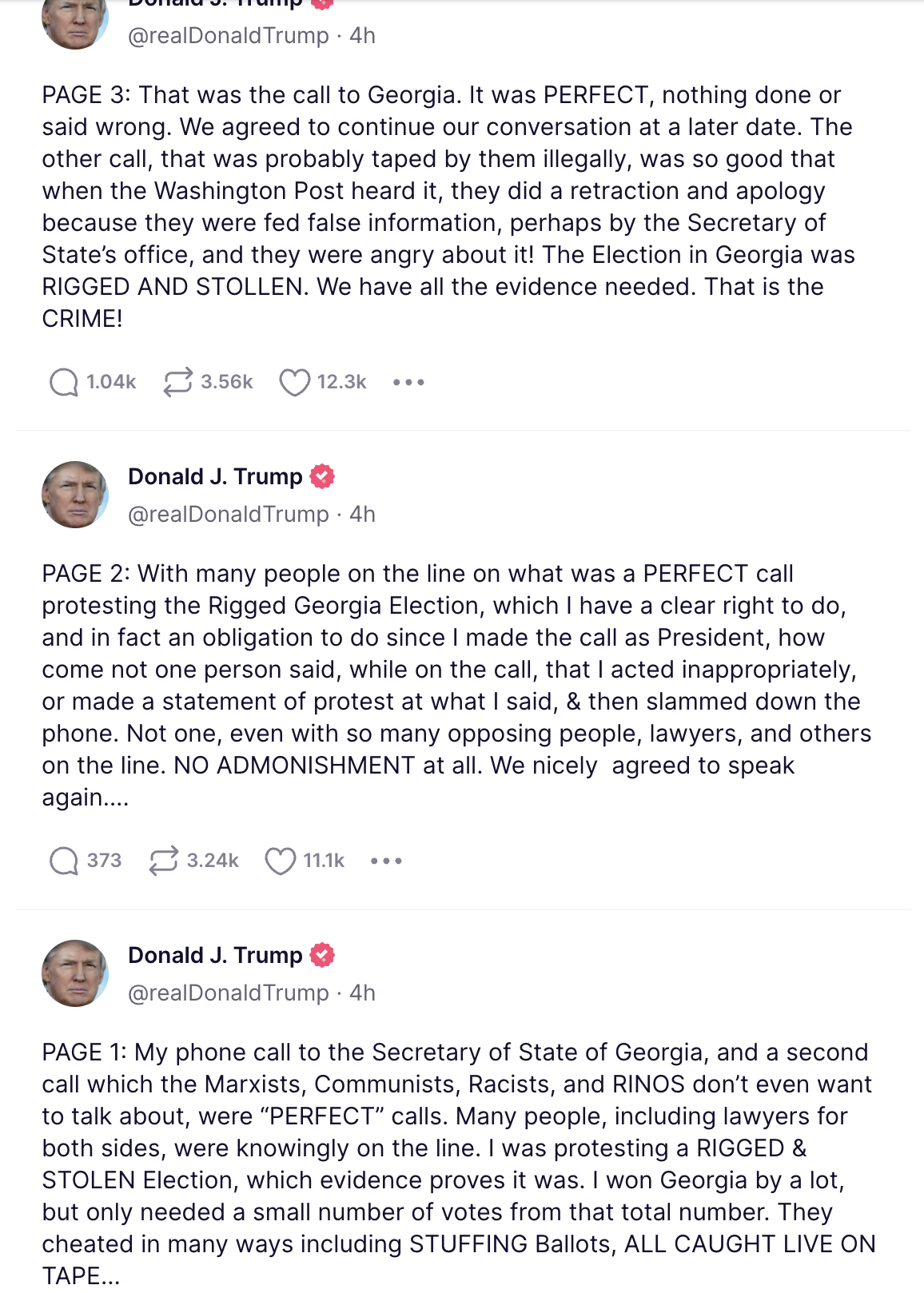Georgia Prosecutors Want To Keep Trump Grand Jury Report Under Wraps. Media Outlets Want ... Not That.
GIVE IT.

(Photo by Win McNamee/Getty Images)
This afternoon in Georgia, Fulton County District Attorney Fani Willis made the case that the special purpose grand jury report on interference with the 2020 presidential election should remain sealed pending her “imminent” charging decision.
First Amendment lawyer Tom Clyde, representing the media intervenors, argued that there’s a strong presumption in favor of public judicial proceedings, and pointed to a provision of a Georgia statute which appears to make publication non-discretionary for the court.

Stuck Drafting A Tough Brief? This Tool Can Help.
And supervising Judge Robert McBurney seemed no less confused at the conclusion of the hearing than when he took the bench at noon.
The only thing that is clear is that Georgia’s special purpose grand jury law is a hot mess. Check out Lawfare for Anna Bower’s terrific post breaking down the relevant statute and precedents.
The DA convened the jurors in May, and successfully litigated subpoenas to force testimony by many of the front row players in Donald Trump’s scheme to steal the state’s 16 electoral votes from President Joe Biden. Senator Lindsey Graham and former White House chief of staff Mark Meadows were ordered to testify, as were attorneys Rudy Giuliani, Jenna Ellis, Cleta Mitchell, Georgia Secretary of State Brad Raffensperger, and several participants in the fake electors plot. But because the special purpose grand jury cannot present an indictment, Texas courts reasoned that they were not criminal subpoenas and refused to enforce them for attorneys Sidney Powell and Jacki Pick.
The grand jury can only produce a report, which it did in early January, voting to make its findings public. Judge McBurney dissolved the body in a January 9 order in which he laid out the question of what to do next, and set the matter for hearing today:
Sponsored

What Do Millennials Think Of Law Firm Life?

Legal Knowledge Management To Drive Dealmaking


The Global Legal News You Need, When You Need It
Remaining is the question of publication of the final report.’ The special purpose grand jury certified that it voted to recommend that its report be published pursuant to O.C.G.A. 15-12-80. That provision is mandatory: “the judge shall order the publication as recommended.” And that provision appears to apply to the work of special purpose grand juries. O.C.G.A. 15-12-102. Unresolved is the question of whether the special purpose grand jury’s final report constitutes presentment.
Unsurprisingly, the prosecutors would prefer not to have the report published while they’re still trying to decide whom, if anyone, to indict. DA Willis herself made a brief opening statement in which she promised that charging decisions were “imminent.” Her deputy Donald Wakeford followed up with an extensive argument about protecting the witnesses and the prosecutorial process.
To which the court responded that the congressional hearings about the January 6 Capitol Riot and issuance of its final report don’t seem to have hampered the Justice Department’s investigation. (Attorney General Garland might have a slightly different take on this one.) The judge also noted that he’d have to issue a gag order on the jurors themselves, because nothing in the statute binds them to secrecy.
Appearing for the media intervenors, which included more or less every news outlet in the country, Clyde argued that there’s a presumption that all court procedures should be public, and pointed to the word “shall” in the statute. He also agreed to take any appeal to the Georgia Supreme Court, as opposed to rolling the dice at the Eleventh Circuit.
In the end, Judge McBurney seemed mindful that delaying his decision might well obviate the need to make it all. The District Attorney has conceded the report will become public — and soon, since she’s on the brink of a charging decision. And once the report is out, the media argument is either moot, or confined to the issue of any redactions. But if Judge McBurney beats DA Willis to the punch, he’ll allow time for her to ask for relief — the order and publication won’t be simultaneous.
Sponsored

The Global Legal News You Need, When You Need It

Stuck Drafting A Tough Brief? This Tool Can Help.
Meanwhile over on Truth Social, Donald Trump seems to be taking all of this in stride:

Mmmmm, stollen. And if we enjoy it before February, it won’t even be stale.
Liz Dye lives in Baltimore where she writes about law and politics.







